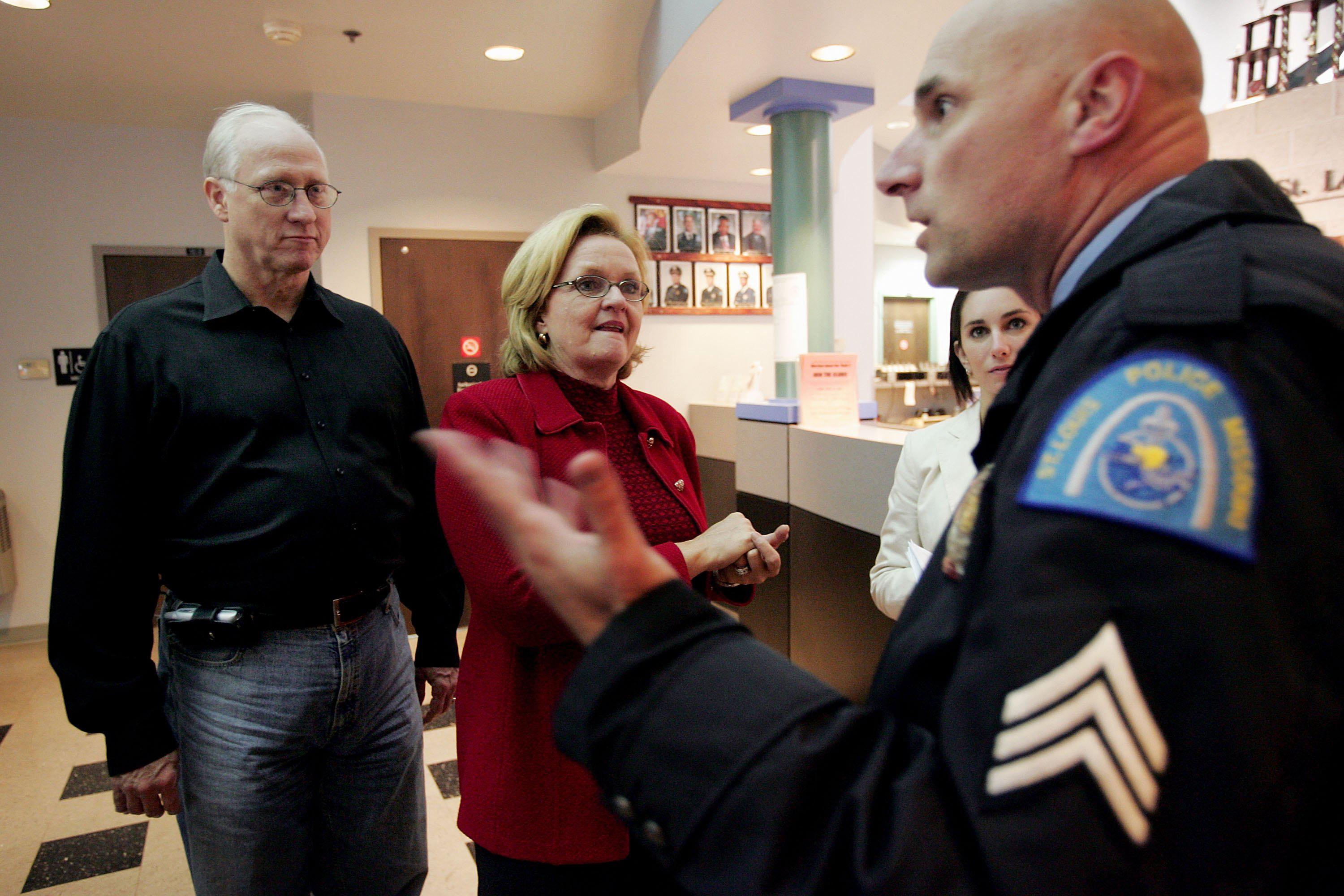Crime is Slate’s crime blog. Like us on Facebook, and follow us on Twitter @slatecrime.
As long as we’re on the topic of cops who get mixed up with illegal drugs, I wanted to mention the strange case of St. Louis police officer Gary Wiegert, otherwise known as Sgt. Feelgood. In February, Wiegert got approval to take a second job, as many cops do. Unfortunately for the department, Wiegert’s second job was as a lobbyist for Show-Me Cannabis, a group that advocates for reforming Missouri’s marijuana laws. Wiegert’s embarrassed superiors moved quickly to harsh his buzz, revoking its approval of his outside employment. This week, Wiegert sued the department, alleging it was restricting his First Amendment rights.
You can understand the department’s chagrin. And I get the sense that Wiegert—he’s a committed libertarian who once hosted a radio show called Cop Talk—does this sort of button-pushing thing fairly often. But the department apparently has no problem with its officers pursuing political activities; before this, Wiegert was registered as a lobbyist for the St. Louis Tea Party. (The most recent post on the St. Louis Tea Party’s blog begins with “I sat down with some black folks on two occasions recently and listened to their conservations about the issues of the day.”)
“We all know that the upset here on the part of the department is the fact that he is … lobbying for an organization that is named Show-Me Cannabis,” Wiegert’s attorney told the Riverfront Times. And while “cop becomes marijuana lobbyist” isn’t as embarrassing as “cop becomes murder lobbyist,” it’s still the sort of headline designed to irritate the top police brass. That’s a shame, because Wiegert has a really good point. His lawsuit notes that the “draconian charges and consequences arising out of possession of small amounts of marijuana, in Plaintiff’s view, has become a detriment on society’s resources and to society.”
It’s also a drain on police department resources: of the 204 controlled substance arrests the St. Louis Police Department reported in February 2013, 84 of them—just more than 40 percent—involved either the possession or sale of marijuana. Cops waste a lot of time and effort on marijuana violations, and I don’t think it undermines a police department’s authority if its members acknowledge that fact.
